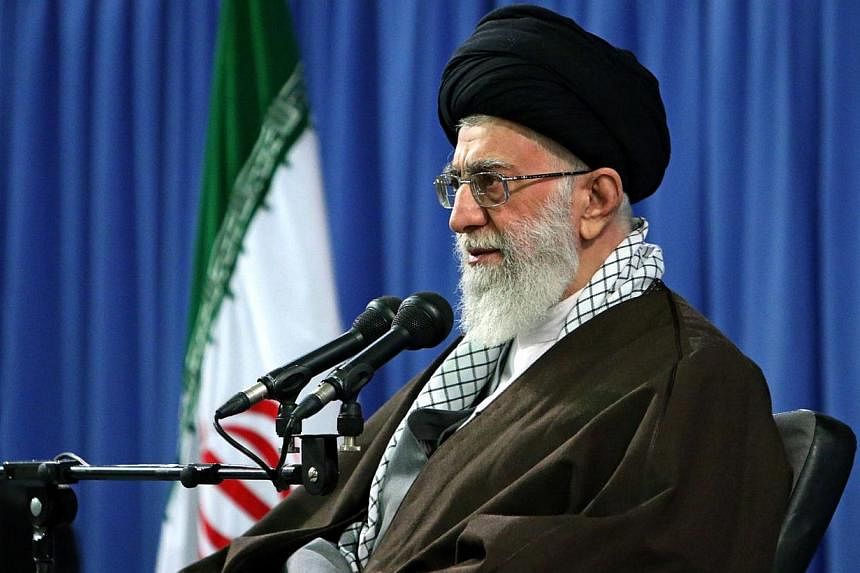DUBAI (Reuters) - Iran's Supreme Leader hit out on Thursday at a letter by United States Republican senators threatening to undo any nuclear deal between Washington and Teheran, saying he was worried because the United States was known for "backstabbing", Mehr news agency reported.
Ayatollah Ali Khamenei, the ultimate authority on all Iranian matters of state, added at a meeting with President Hassan Rouhani and senior clerics that whenever negotiators made progress, the Americans became "harsher, tougher and coarser".
Mehr quoted Ayatollah Khamenei as saying: "Of course I am worried, because the other side is known for opacity, deceit and backstabbing. Every time we reach a stage where the end of the negotiations is in sight, the tone of the other side, specifically the Americans, becomes harsher, coarser and tougher. This is the nature of their tricks and deceptions."
The clerical Supreme Leader said the letter was "a sign of the decay of political ethics in the American system", and he described as risible long-standing US accusations of Iranian involvement in terrorism.
The letter signed by 47 Republican senators warned Iran that any nuclear deal made with US President Barack Obama, a Democrat, could last only as long as he remained in office - an unusual intervention into US foreign policy-making.
The White House has described the letter as "reckless" and"irresponsible", saying it interfered with efforts by six major powers to negotiate with Iran on a deal to prevent it from building a nuclear bomb.
US Secretary of State John Kerry, Washington's chief nuclear negotiator, voiced "utter disbelief" at the senators' action, saying the notion that they could alter any executive accord between government leaders was "flat wrong".
Ayatollah Khamenei has long been a conservative hardliner wary of any detente with the West but has backed the diplomacy pursued by Mr Rouhani, who was elected by a landslide in 2013 promising steps to end Iran's economically crippling international isolation.
At the same time, Ayatollah Khamenei has not stopped speeches larded with denunciations of the United States to reassure powerful hardliners in the clergy and security services, for whom anti-US sentiment has been central to Iran's Islamic Revolution.
The nuclear negotiations, which resume in Lausanne, Switzerland, next week, are at a critical juncture as the sides try to meet an end of March target for an outline accord, with June 30 the deadline for a detailed, final agreement.
Iran and the powers have twice extended their deadline to conclude the negotiations, which aim to place curbs on Iran's nuclear energy capacity to help ensure it cannot develop nuclear bombs. In return, Iran would secure a removal of sanctions that have severely damaged Iran's oil-based economy.
The Islamic Republic dismisses Western suspicions that it aims to develop nuclear weapons, saying its atomic energy programme is only for peaceful purposes.
Ayatollah Khamenei also criticised a March 3 speech to Congress by Israeli Prime Minister Benjamin Netanyahu on Tehran's nuclear programme, describing it as remarks "by a Zionist clown".
In the speech, in which he aligned himself with Mr Obama's hawkish Republican foes, Mr Netanyahu warned Washington that it was negotiating a bad deal with Iran that could spark a "nuclear nightmare".
Israel, the only Middle East state with a presumed nuclear arsenal, regards Iran's nuclear agenda as a threat and is dismissive of the talks, suggesting Tehran is only trying to buy time to become a threshold nuclear power.
Ayatollah Khamenei also repeated a call for Iran's economy to diversify away from oil revenues to reduce the effectiveness of international sanctions isolating the oil sector. "If the country and economy were not dependent on oil revenues... could the enemy harm us with sanctions?" he said.

